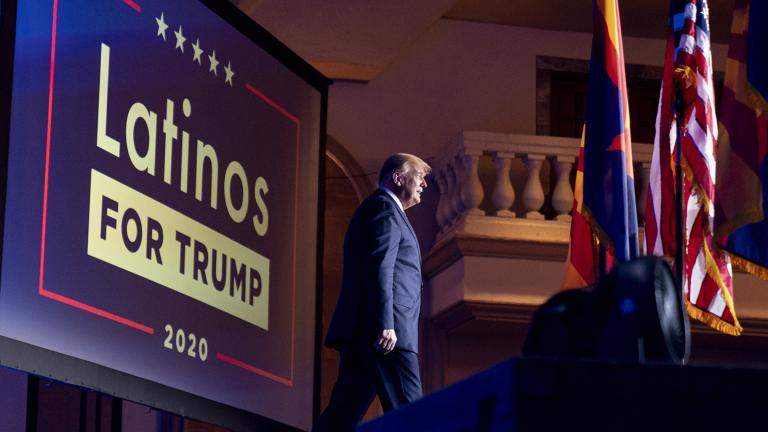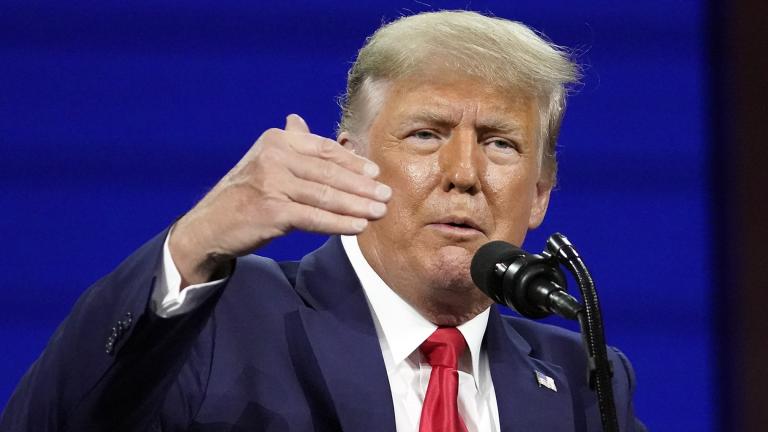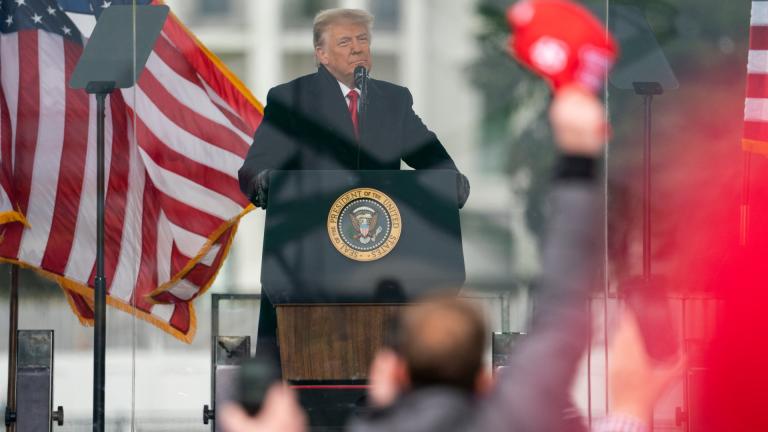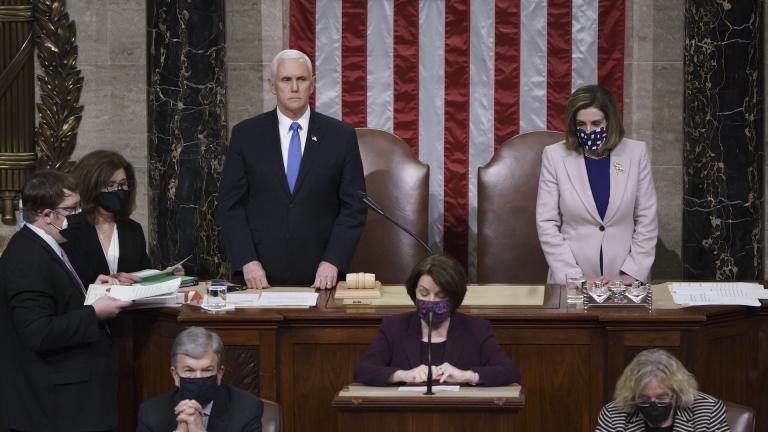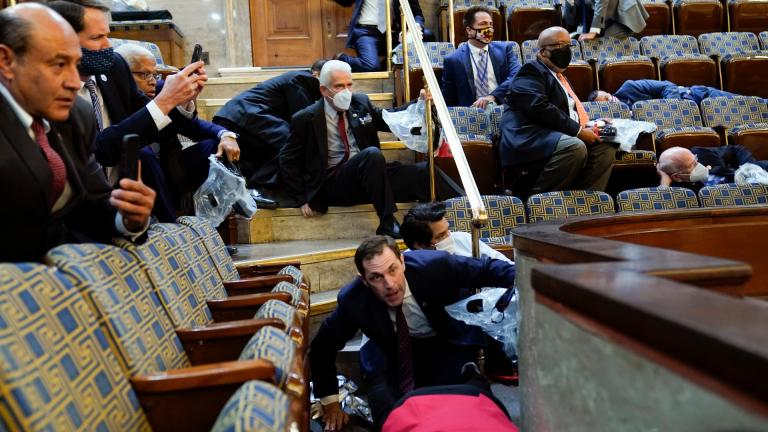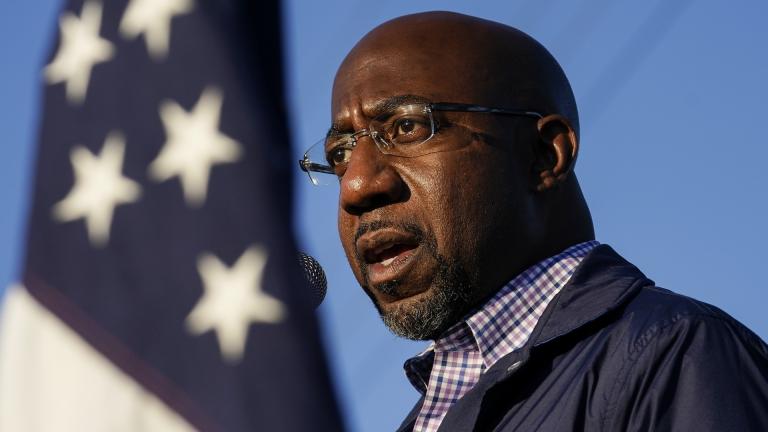In a blow to Gov. J.B. Pritzker and to his hopes of injecting billions of dollars more revenue into the state budget, Illinois voters rejected a constitutional amendment to overhaul how the state taxes income – a result that portends budget cuts, an overall income tax hike, or a combination of both.
With 98% of precincts reporting Wednesday morning, the question was trailing 55% to 45% in favor – a hurdle too high to clear, even as outstanding ballots continue to be counted.
Late Tuesday night, chair of the Pritzker-funded Vote Yes for Fairness group Quentin Fulks had signaled the campaign would not yield “until every ballot is counted.”
But by the next morning, Fulks was out with an updated statement.
“Illinois is in a massive budget crisis due to years of a tax system that has protected millionaires and billionaires at the expense of our working families, a crisis that was only made worse by the Coronavirus pandemic,” he said. “Now lawmakers must address a multi-billion dollar budget gap without the ability to ask the wealthy to pay their fair share. Fair Tax opponents must answer for whatever comes next.”
Pritzker spent $56 million of his personal money to promote moving to what he’d dubbed a “fair tax” as it would allow the state to charge higher rates on those in higher income brackets and lower rates for lower-income filers.
But billionaire hedge fund operator Ken Griffin went almost dollar-for-dollar with the governor, spending nearly $54 million to combat the change.
“Illinois voters sent a message that with an $8 billion deficit and two massive tax hikes in the last 10 years, we cannot trust Springfield politicians with another tax hike,” said Lissa Druss, spokeswoman for the Griffin-backed Coalition to Stop the Proposed Tax Hike Amendment.
Illinois’ wealthiest residents stood to get hit hardest in their pocketbooks, had the measure been approved.
The constitutional amendment itself merely removed a constitutional mandate that all personal income be taxed at a flat rate.
But a 2019 law was in place, and would have taken effect in January should the constitutional amendment have been approved. Under that, millionaires’ income would be taxed at rate of 7.99%, while individuals with incomes of $250,000 or below would see marginal tax rates at or below the current rate of 4.95%.
Pritzker had been counting on the extra tax on the wealthy to bring in $3 billion that would help to buttress Illinois’ ailing finances. Without that revenue, lawmakers will have to make tough choices of seeking alternative methods of bringing in more money, or making cuts to fill that billions-deep budgetary hole.
Update: 10:48 p.m.
With about 72% of precincts reporting, around 290,000 more people have voted against the measure than for it, according to the AP.
In order for the amendment to be ratified, 60% of people voting on the measure must approve it, or a simple majority — 50% plus one — including voters who skipped the questions on the ballot.
Currently, 46.23% of votes reported support the amendment.
Update: 9:36 p.m.
With around 50% of Illinois precincts reporting, votes in favor of the constitutional tax amendment trail those against it by roughly 42,700, according to the AP.
As reported earlier:
It sounds like an astronomical sum: $100 million spent by opposing campaigns to try to influence Illinois voters about whether the state should amend the constitution to allow income to be taxed at a graduate rate. But that figure pales in comparison to the long-term consequences the decision by voters will have on the state’s finances, as well as their own pocketbooks.
One one side: Gov. J.B. Pritzker, unions, progressives and other advocates of the amendment, who say a graduated tax is a “fair tax.”
“You pay the same tax rate as millionaires and billionaires,” a flier paid for by Pritzker’s Vote Yes for Fairness campaign reads. “Ninety-seven percent of Illinois residents, including our essential workers, will get a tax cut. Millionaires and billionaires will finally pay their fair share.”
On the other side: some of Illinois’ other wealthiest residents, including hedge fund manager Ken Griffin, as well as the state’s chamber of commerce, farm bureau and other businesses interests who say lifting the flat tax requirement is akin to giving politicians a “blank check.”
“The politicians have raised taxes twice in the last decade and we still have an $8 billion deficit,” reads a brochure sent to voters by The Coalition to Stop the Proposed Tax Hike Amendment. “We should not allow politicians to keep raising taxes until they get their spending under control.”
The state’s constitution requires that all income be taxed at a singular, flat rate – it’s currently 4.95%.
The question before voters in the general election is whether the state should toss the constitutional requirement that “a tax on or measured by income shall be at a non-graduated rate” in favor of a structure that would allow for those in different tax brackets to be taxed at different rates.
Should voters approve the change, the constitution would give state legislators a wider door to set tax rates, such that the General Assembly could “provide by law for the rate or rates of any tax on or measured by income.”
The amendment itself doesn’t set rates, though a law is in place that would kick in come January should the question receive voters’ approval.
Per that law (Public Act 101-008), joint filers with incomes of $250,000 or less would see their tax rate decrease slightly or remain at 4.95%.
Joint filers with income above that would face higher marginal tax rates, kicking in at 7.75% on income above $250,001.
Those with joint annual incomes over $1 million, however, would pay a 7.99% tax rate on their entire income, a jump that would see 0.3% of Illinois tax filers paying an additional $138,000 to the state each year, or $2.8 billion collectively.
Video: Arguments for and against a graduated income tax rate.
There are two ways for the change to make it into the state’s constitution: The question either needs to win support from 60% of those who voted on the question, or a majority (over 50%) of everyone who cast a ballot (meaning those who cast a ballot in the 2020 election but who skip the constitutional amendment question).
“Because we won’t know how many people voted in the election but didn’t vote on that ballot question, we’re almost certainly going to have to wait a couple weeks to find out the math on that situation,” said Scott Kennedy of Illinois Election Data. “So unless it passes overwhelmingly or unless it doesn’t have enough support that it’s worth waiting for – if it’s in that sort of 50 to 60 range, we’re almost certainly going to have to wait probably two to three weeks no matter what.”
That lag time is in part because Illinois allows two weeks for ballots postmarked on or before Nov. 3 to arrive at local election authorities’ mailboxes.
Follow Amanda Vinicky on Twitter: @AmandaVinicky

